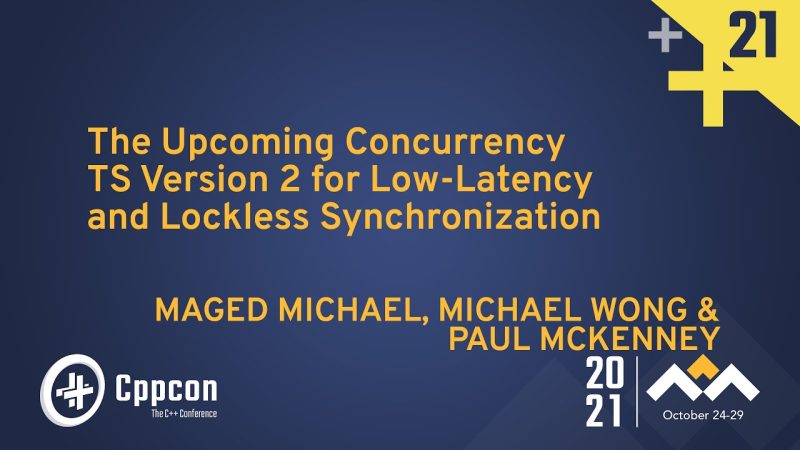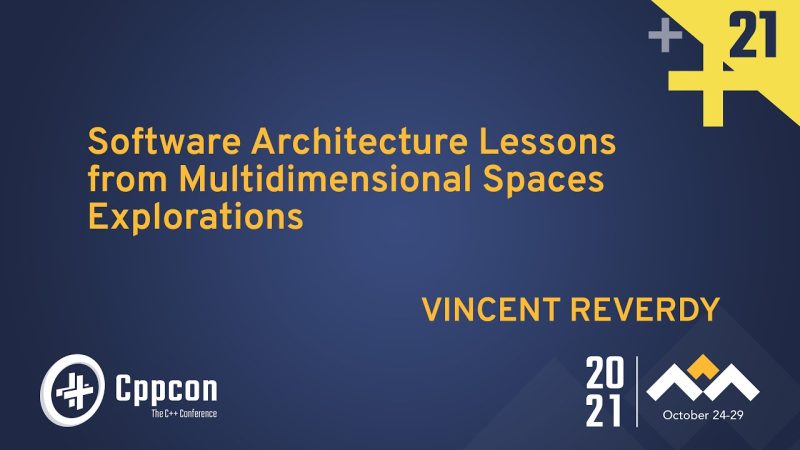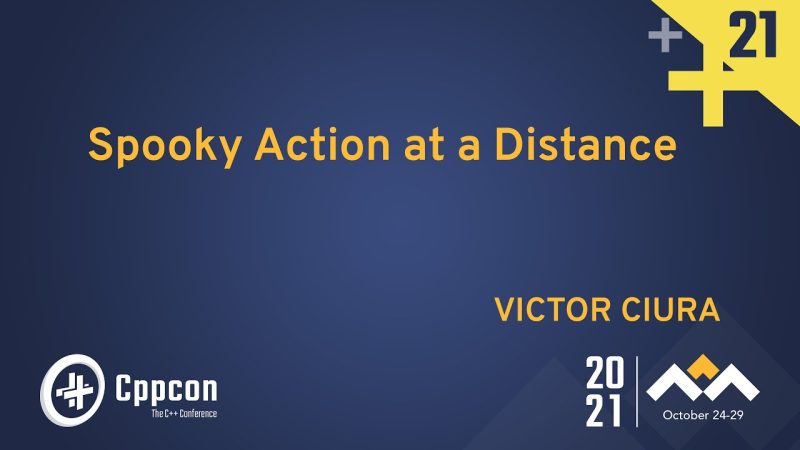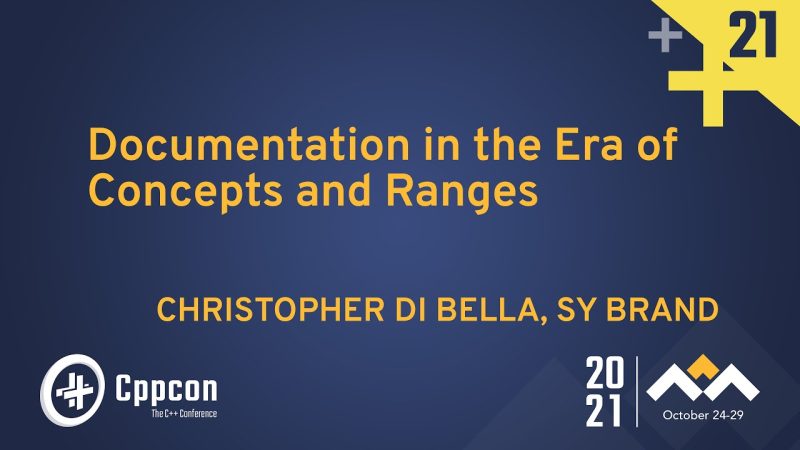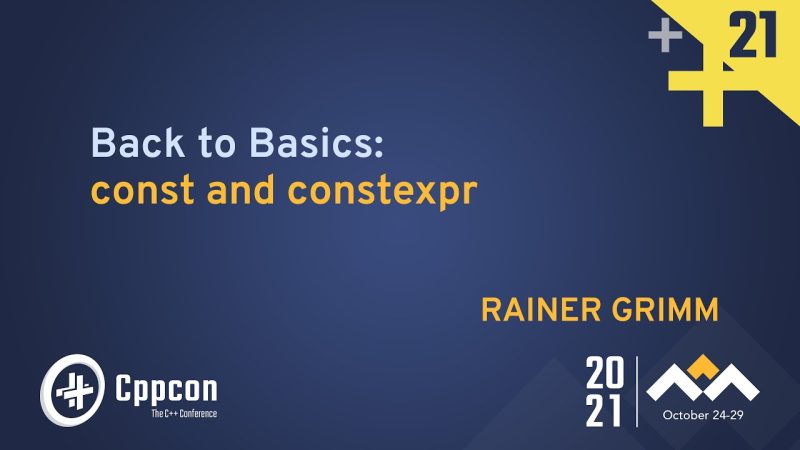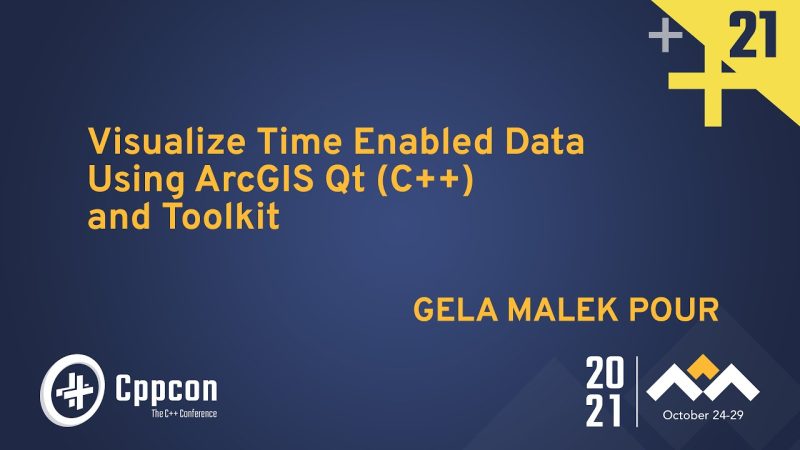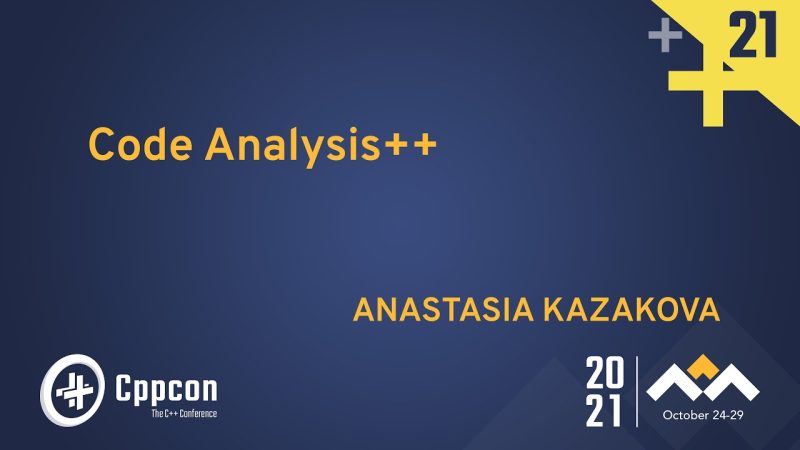https://cppcon.org/
https://github.com/CppCon/CppCon2020
---
The June 2021 ISO C++ virtual plenary approved Concurrency TS Version 2. This new TS has been in the works for 6+ years and will move us towards supporting highly intensive, low latency lockless synchronization mechanisms. This talk will be given by the Editing team for Concurrency TS2, as well as some of the specific authors.The initial approved content will be hazard pointers (HP) and read-copy update (RCU).
Hazard pointers is a deferred reclamation technique. It is used for fast and scalable protection of access to shared objects that may be removed concurrently. It allows indefinite protection, which makes it suitable for cases of object protection while blocking or while executing arbitrary user code. It also guarantees bounding of unreclaimed objects that are eligible for reclamation.
RCU is another deferred-reclamation technique that is most frequently used to replace reader-writer locking for linked data structures in a number of operating system kernels and concurrent applications. In the most aggressive implementations, RCU readers might use exactly the same sequence of instructions that would be used in the same traversal of a read-only data structure, which means that RCU can provide excellent read-side performance and scalability. The C++ RCU proposal features RAII RCU readers, both intrusive and non-intrusive retire functions, and full compatibility with the C++ type system.
This talk will describe the final approved form of hazard pointers and RCU, and also what we hope to learn from the TS process. This talk will also cover in-the-wild advances in hazard pointers and RCU during the multi-year process leading up to this TS. We will draw examples from the Folly library, where both hazard pointers and RCU are used, and from the various forms of RCU within the Linux kernel. We expect that the TS will be a good vehicle for feedback, and the in-the-wild advances will also help shape entry into IS.
We will also give a high-level overview of other contents that we expect to be added to the TS such as Snapshot and Asymmetric fences. We hope to describe these in a future talk after they have passed LWG review. We believe that in about a year, Concurrency TS2 will be completed and released for public review.
We will also describe the new chapters that we hope will enter the C++ standard in C++23 or C++26.
---
Maged Michael
Maged Michael is a software engineer at Facebook. He is the inventor of hazard pointers, lock-free malloc and several algorithms for concurrent data structures. He received a Ph.D. in computer science from the University of Rochester. He is an ACM Distinguished Scientist. He is an elected member of the Connecticut Academy of Science and Engineering. He received the 2014 ACM SIGPLAN Most Influential PLDI Paper Award for his paper on Scalable Lock-Free Dynamic Memory Allocation.
Michael Wong
Michael Wong is Distinguished Engineer/VP of R&D at Codeplay Software. He is a current Director and VP of ISOCPP , and a senior member of the C++ Standards Committee with more then 15 years of experience. He chairs the WG21 SG5 Transactional Memory and SG14 Games Development/Low Latency/Financials C++ groups and is the co-author of a number C++/OpenMP/Transactional memory features including generalized attributes, user-defined literals, inheriting constructors, weakly ordered memory models, and explicit conversion operators. He has published numerous research papers and is the author of a book on C++11. He has been an invited speaker and keynote at numerous conferences. He is currently the editor of SG1 Concurrency TS and SG5 Transactional Memory TS. He is also the Chair of the SYCL standard and all Programming Languages for Standards Council of Canada.
Paul E. McKenney
Paul E. McKenney has been coding for almost four decades, more than half of that on parallel hardware, where his work has earned him a reputation among some as a flaming heretic. Paul maintains the RCU implementation within the Linux kernel, where the variety of workloads present highly entertaining performance, scalability, real-time response, and energy-efficiency challenges. Paul was previously an IBM Distinguished Engineer at the IBM Linux Technology Center. Prior to that, he worked on the DYNIX/ptx kernel at Sequent, and prior to that on packet-radio and Internet protocols (but long before it was polite to mention Internet at cocktail parties), system administration, business applications, and real-time systems. His hobbies include what passes for running at his age along with the usual house-wife-and-kids habit.
---
Videos Filmed & Edited by Bash Films: http://www.BashFilms.com
YouTube Channel Managed by Digital Medium Ltd https://events.digital-medium.co.uk
The CppCon YouTube Channel Is Sponsored By:
JetBrains : http://jb.gg/cpptools
SonarSource: https://www.sonarsource.com/


